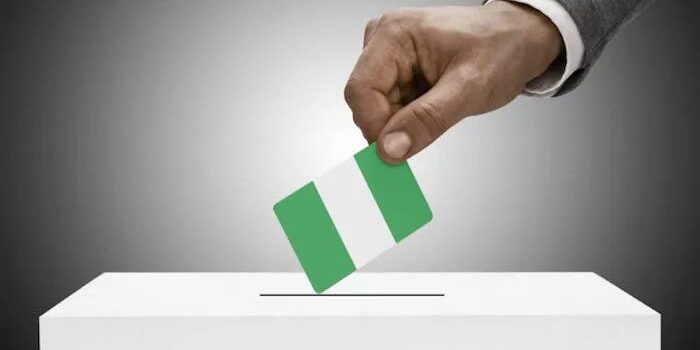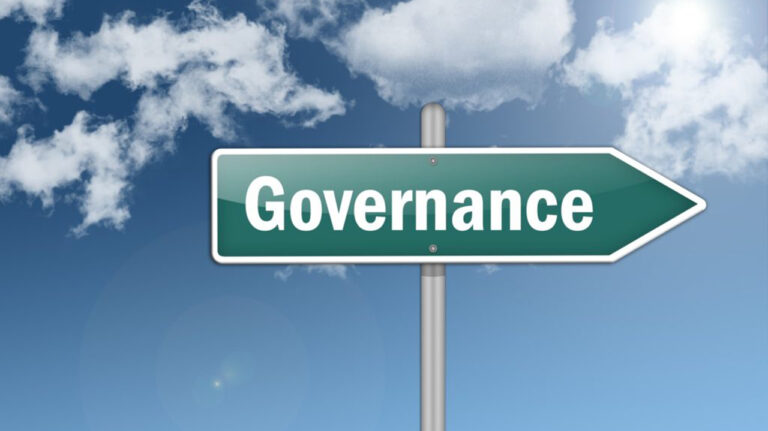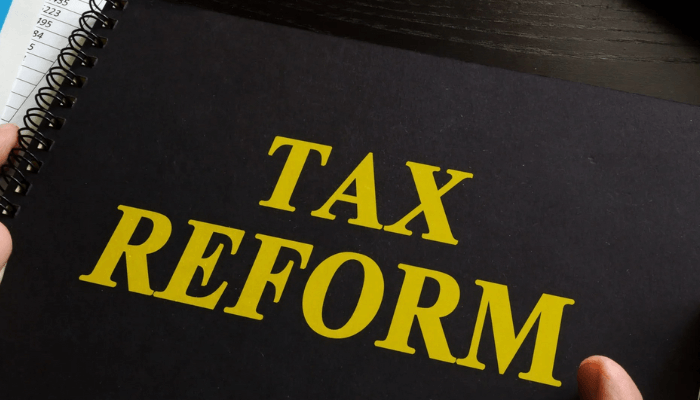The Legality of Section 85 of the Electoral Act 2022 in Relation to the Citizenship Rights Under Chapter Three of the 1999 Contitution: A Discourse
THE LEGALITY OF SECTION 85 OF THE ELECTORAL ACT 2022 VIS-A-VIS CITIZENSHIP RIGHTS UNDER CHAPTER THREE OF THE 1999 CONSTITUTION: A DISCOURSE
1. INTRODUCTION
The Nigerian electoral polity has transitioned from a restrained suffrage system since colonial times to adopt a more liberal outlook over the years.[1] However, the short-circuited geographical approach to electoral matters is still an inherent flaw limiting citizens from participating fully in electoral matters in the country. This creates the need for stronger electoral laws and institutions to enable all adult Nigerians exercise their franchise and donate in favour of political candidates or parties of their choice irrespective of their geographical location across the globe.[2] This article expounds the foundational provisions for citizenship rights to participate in electoral processes in Nigeria through political donations. The structural deficit that appears to limit the large number of Nigerians in diaspora from donating to a political candidate or party of their choice is put under review in this article.
Statistics published by the Nigerians in Diaspora Commission (NIDCOM) reveal that the estimated population of Nigerians in diaspora as at 2019 was between five to fifteen million people.[3] This populace account for an estimated $19.2billion remittances to the country in 2021 and for various other positive impacts in the country.[4] This is an indication of the Nigerian diaspora’s economic and allied interests in the country. Perceived sentimental attachment, homeland loyalty, and family ties are also basis for presuming interests in homeland affairs, even in the case of persons with dual citizenship.[5]&[6] Therefore, it is pertinent for the legal paraphernalia on electoral matters to protect the interests and rights of these citizens.
This paper critiques the extant Nigerian laws on diaspora electoral participation in relation to donations to political parties or candidates against the backdrop of the 1999 Constitution (“CFRN 1999”) particularly chapter 3 and section 225(3) vis-à-vis the provisions of section 85 of the Electoral Act 2022 (“EA 2022”). Some vital recommendations for diaspora participation in electoral processes through donations are brought to fore at the tail-end of this paper.
2. FRAMEWORK ON ELECTORAL PARTICIPATION IN NIGERIA BY DONATION
The framework on campaign financing through political donations in Nigeria is statutorily defective. Electoral participation through political donations is subject to citizen’s residency within the country at the relevant time of participation. There is no express provision for the right to donate in support of political causes under Nigerian jurisprudence. However, this can be inferred from various provisions of EA 2022 which recognises political donations by citizens such as sections 87(1), 88(8), et cetera. Also inherent in the right to vote and support political parties or candidates of preference is the right to donate to political causes. Borrowing a leaf from U.S. jurisprudence, suppression of the right to make political donations is an infringement on citizens’ Freedom of Expression.[7]
The legal framework in Nigeria fails to make express provisions for persons who can make political donations. In establishing distinctive classes of persons who can donate to political parties and candidates, if any, it is important that Nigeria citizens who are qualified to vote should enjoy priority. A cursory look at section 12 of EA 2022 reveals that Nigeria practices a universal suffrage system wherein any adult Nigerian who is duly registered to vote by INEC can participate in any voting exercise. The section reads thus –
“12. (1) A person shall be qualified to be registered as a voter if such a person—
(a) is a citizen of Nigeria;
(b) has attained the age of 18 years;
(c) is ordinarily resident, works in, originates from the Local Government, Area Council or Ward covered by the registration centre;
(d) presents himself to the registration officers of the Commission for registration as a voter; and
(e) is not subject to any legal incapacity to vote under any law, rule or regulations in force in Nigeria.”
Therefore, a person who enjoys Nigerian citizenship under Chapter 3 of CFRN 1999, whether by birth,[8] descent,[9] registration[10] or naturalisation[11] is entitled to be registered as a voter in any state or national election as long as he/she has attained the age of majority, that is, eighteen (18) years old. He or she must also present his/herself for voting. Legal incapacity as one of the criteria for voting is defined as “a person disqualified under the Constitution or this Act or any other law, rules and regulations from registering as a voter or from contesting elections”. Disqualified persons ordinarily include non-citizens, persons under 18 years, and persons of unsound mind.[12]
Additionally, the legal framework does not make provision for the Nigerian diaspora to be registered while outside the country or to vote during elections except they do so within Nigeria but a registered Nigerian voter can vote if he/she is in the country (specifically at his/her polling unit) at the time of election. There are attempts to introduce diaspora voting as obtainable in some other African states into the Nigerian electoral system.[13] This may likely entail creation of avenues for registration in diaspora which may result in the amendment of section 12(1)(c) of EA 2022, creation of platform(s) to vote upon due registration, and enactment of laws that allow diaspora voting. It is uncertain whether intended development contemplates diaspora donations.
Furthermore, in the absence of any laws specifying persons who can make political donations, the floodgates for the possibility of other categories of persons to make political donations is loose. Undischarged bankrupt, minors, insane persons, foreigners living in Nigeria, and so on can finance political causes in the country.
There are restrictions on the amount that can be donated to political candidates or parties in an election. Section 88(8) of EA 2022 provides that –
“(8) No individual or other entity shall donate to a candidate more than N50,000,000”
This provision is quite instructive for individuals or entities who wish to make political donations. The upper limit for their financial donations is ₦50,000,000. This is unequivocally applicable to individuals. Companies are prohibited from making such donations by virtue of section 43(2) of the Companies and Allied Matters Act 2020 (“CAMA 2020”). Stringent sanctions are imposed on erring officers and/or members of the company who act on behalf of the company when making political donations. The section provides that –
“(2) A company shall not have or exercise power either directly or indirectly to make a donation or gift of any of its property or funds to a political party or political association, or for any political purpose, and if any company, in breach of this subsection makes any donation or gift of its property to a political party or political association, or for any political purpose, the officers in default and any member who voted for the breach shall be jointly and severally liable to refund the company the sum or value of the donation or gift and in addition, every such officer or member commits an offence and is liable to a fine equal to the amount or value of the donation or gift.”
Presumably, it suffices to posit that the intent of section 43(2) of CAMA 2020 is to prevent companies from wielding political influence which can result in them dictating favourable policies in their operational sphere to stifle competition and promote other unfair practices. It is arguable that business names and Incorporated Trustees such as NGOs, Associations, et cetera may suffice as “other entity” to make donations as they do not fall under the definition of company in Section 868 of CAMA 2020. These are also ventures capable of orchestrating private sector dominance in political affairs therefore it would be fallacious to limit companies’ political participation without a further attempt to limit theirs.
The provisions of section 221 of CFRN 1999 may cure the preceding issue on transactional ventures sufficing as “other entity” in section 88(8) of EA 2022. It prohibits “associations” except political parties from contributing to the expenses of any candidate at an election. No attempt is made to define association after its deletion by the Constitution of the Federal Republic (First Alteration Act) 2010 where it was defined as “any body of persons corporate or unincorporate who agree to act together for any common purpose, and includes an association formed for any ethnic, social, cultural, occupational or religious purpose”. The ordinary meaning of ‘association’ may be inputted into the section. This entails a group of two or more people with common interest(s).[14]
Based on the foregoing, group donations to political candidates are not permitted under Nigerian law. This would consequently exclude any group of persons or any venture formed by a group of persons including companies, partnerships,[15] NGOs,[16] et cetera from donating to political candidates because the use of such donations would be to defray election expenses. Unless, the use of “other entity” is redundant, the most tenable reference to it is in relation to sole proprietor ventures under CAMA 2020.[17] However, such ventures do not have distinct personalities from their owners. Ultimately, section 221 of CFRN 1999 operates to make crowdfunding for political purposes unlawfully therefore only persons who make donations individually participate politically through donations within the bounds of Nigerian law.
Another importance of section 88(8) of EA 2022 is that it recognizes that donations can be made to political candidates distinctively from their political parties by placing a limit on the amount that an individual can donate to a candidate. This distinction is also recognized in other provisions of the act such as section 87 which provides that –
“87. (1) The Commission shall have power to place limitation on the amount of money or other assets which an individual can contribute to a political party or candidate and to demand such information on the amount donated and source of the funds”
Furthermore, unlike donations to candidates, section 90(3) extends the powers of political parties to accept donations which exceed ₦50,000,000, notwithstanding that the identity of the donor must be revealed. INEC may also limit the amount which an individual or a political party can contribute to a political party or a candidate under section 87 of EA 2022. The body also has sufficient powers to investigate and regulate the activities of political parties in relation to finances under CFRN 1999 (Section 225) and EA 2022 (Sections 86(3)). There are lacunae in relation to the absence of statutory checks in relation to auditing of donations received by political candidates and the inclusion of expenses incurred by candidates and made from donations as expenses under the Act.
3. NIGERIA’S LEGAL POSITION ON DIASPORA DONATIONS
It is settled that individuals can make donations to political parties and candidates. A holistic review of section 85 of EA 2022 shows a prima facie restriction on political parties in Nigeria from retaining and receiving funds or assets from outside Nigeria. This is a blanket prohibition and encompasses situations where Nigerian citizens in diaspora may wish to donate to political parties in the country to support electoral causes in exercise of their rights. The presumed intent of this law is to protect Nigeria’s sovereignty from foreign (non-Nigerian) influence and restrict national politics to forces within the country.[18] On the face of it, the section makes it an offence for political parties to receive donations. It reads thus –
“85. Any political party that —
(a) holds or possesses any fund outside Nigeria in contravention of section 225 (3) (a) of the Constitution, commits an offence and shall on conviction forfeit the funds or assets purchased with such funds to the Commission and in addition may be liable to a fine of at least N5,000,000; or
(b) retains any fund or other asset remitted to it from outside Nigeria in contravention of section 225 (3) (a) of the Constitution commits an offence and shall on conviction forfeit the funds or assets to the Commission and in addition may be liable to a fine of at least N5,000,000”
Lucidly, copious reference is made to section 225(3)(a) of CFRN 1999 because the provisions of section 85 of EA 2022 are predicated on section 225(3)(a) of CFRN 1999. The constitutional provisions are to the effect that that any funds or assets held or possessed in, or received by Nigerian political parties from the diaspora, must be paid to the Independent National Electoral Commission (“INEC”).[19] The draughtsman’s error in referencing section 225(3)(a) of CFRN 1999 in Section 85(b) of EA 2022 is evident because section 225(3)(a) CFRN 1999 does not preclude political parties from receiving funds or assets remitted to it from citizens diaspora. The relevant section of CRFN 1999 read thus –
“Section 225(3) No political party shall –
(a) hold or possess any funds or other assets outside Nigeria; or
(b) be entitled to retain any funds or assets remitted or sent to it from outside
Nigeria
(4) Any funds or other assets remitted or sent to a political party from outside
Nigeria shall be paid over or transferred to the Commission within twenty-one days of its receipt with such information as the Commission may require”
A combined reading of section 85(a) of EA 2022 and section 225(3) of CFRN 1999 shows the existence of a corporate liability regime for political parties that”hold or possess funds or assets outside Nigeria”. Also, a combined reading of section 85(b) of EA 2022 shows that no political party can be found culpable of contravening section 85 of EA 2022 in its entirety for receiving funds from the diaspora by virtue of section 85(b) of EA 2022’s hinging on section 225(3)(a) of CFRN 1999. The offence of receiving funds or assets from sources outside the country does not arise under section 225(3)(a) of CFRN 1999. Hence, since an offence cannot arise for receiving funds from diaspora under section 85(b), then no political party can be held culpable for infraction under the section.[20] However, it is pertinent to highlight that the provisions of section 225(3)(b) of CFRN 1999 will still apply to restrict political parties from receiving donations from sources outside the country.
Additionally, section 85 of EA 2022 is only applicable to political parties. That is, only political parties are restricted from receiving diasporan donations. No law prevents citizens from donating funds or assets to political parties however, such funds or assets will eventually be handed over to INEC.[21] On the other hand, the provisions of EA 2022 do not also restrict citizens in diaspora from donating to support political candidates in the country. It is a settled principle of law that items not contained in a statute are not covered by the provisions of that statute, expressio unius est exclusio alterius.[22] Although, it is arguable that since it is political parties that field candidates for elections and it is political parties that directly participate in elections by virtue of their express inclusion on ballot papers, and not the parties, it is impracticable to donate to a candidate without deeming it as a donation to his/her party.[23]
Clearly, the provisions of section 85 of EA 2022 leave no room for doubt as to the persons under its scope, namely, political parties and without extension to candidates. Therefore, a political candidate may receive funds from individuals in the diaspora. More so, the provision for sanction which is primarily forfeiture of funds or assets,[24] and checks mechanism in form of powers to audit the detailed statement of assets and liabilities, and analysis of sources of funds of political parties by INEC,[25] is only made for political parties. Marginal notes further indicate that section 85 of EA 2022 contains offences in relation to finances of a political party and not candidates.
4. RECOMMENDATIONS
There is a need to bolster Nigerian laws on political donations from the diaspora. A likely structural challenge with implementation of laws on diaspora donations is the inability of the country’s electoral body to interfere with political activities in diaspora under international law principles. However, this will unlikely not justify the unlawful exclusion of citizens from exercising their electoral rights to make donations and to express their political opinion under section 39 of CFRN through donations under Nigerian democracy. Measures may be put in place to check excesses. For example, the introduction of an authorised channel for political donations from the diaspora, et cetera. Such channels will monitor the sources of donations and ensure that only citizens can donate.
Additionally, Nigerian laws must be amended to safeguard the objective of ensuring that only citizens are allowed to make political donations. This will obliterate the concern of foreign interference in national matters. Undoubtedly, foreign non-Nigerian actors may act under the cloak of citizens to influence elections in the country albeit working towards creating a sustainable and transparent channel for citizens’ donations from the diaspora is paramount.
5. CONCLUSION
A basic citizenship right of Nigerians is the right to participate in the electoral process through donations to political parties and candidates. The Nigerian legal paraphernalia does not restrict individuals from making political donations albeit, companies and associations are prohibited from doing so. A review of section 85 of EA 2022 and section 225(3) of CFRN 1999 shows that section 85 of EA 2022 only limits political parties from holding or possessing assets outside Nigeria but its scope does not extend to restrict receipt of funds or assets from diaspora based on its wordings. However, section 225(3)(b) of CFRN 1999 sufficiently covers the latter.
Section 85 of EA 2022 and section 225(3) of CFRN 1999 only restricts political parties and not political candidates from receiving and retaining funds from the diaspora. Hence there is no provision under Nigerian law restricting a political candidate from receiving funds from individual citizens anywhere in the world who intend to exercise their citizenship right to donate albeit deference must be made to the upper financial limit of ₦50,000,000. Political parties can receive funds from individuals but disclosure must be made to INEC if the funds exceed ₦50,000,000.
Conclusively, section 85 of the Electoral Act 2022 does not infringe on citizens’ rights to support political causes by donating to political candidates from the diaspora in exercise of their citizenship rights under CFRN 1999.
[1] Arowosegbe, J., 2020. Academics and Election Administration in Nigeria. Journal of International Development, 32(7), pp.1009-1032.
[2] Iheduru, O., 2011. African states, global migration, and transformations in citizenship politics. Citizenship Studies, 15(2), pp.181-203.
[3] NIDCOM Media, 2019. Nigerians In Diaspora. [online] Nigerians in Diaspora Commission. Available at: <https://nidcom.gov.ng/uncategorized/nigerians-in-diaspora/> [Accessed 13 September 2022].
[4] Nidcom.gov.ng. 2021. National Diaspora Policy – Nigerians in Diaspora Commission. [online] Available at: <https://nidcom.gov.ng/national-policy-on-diaspora/> [Accessed 13 September 2022].
[5] De Ryhove, S., 2013. 3. [online] Available at: <https://www.polity.org.za/print-version/the-right-to-vote-where-do-citizens-in-the-diaspora-stand—part-1-2013-04-05> [Accessed 13 September 2022].
[6] Constitution of the Federal Republic of Nigeria 1999 (“CFRN 1999”), Section 28
[7] McCutcheon v. Federal Election Commission, 572 U.S. 185 (2014)
[8] CFRN 1999, Section 25
[9] Ibid
[10] CFRN 1999, Section 26
[11] CFRN 1999, Section 27
[12] Various sections of the 1999 Constitution and other laws provide for qualification of persons who should hold certain offices. They often exclude convicts facing death sentences, undischarged bankrupt, insane persons, persons excluded on the basis of age. Apart from the list of individuals above, no law justifiably disqualifies other categories of people from voting.
[13] Sundberg, A., ‘The history and politics of diaspora voting in home country elections’, Overseas Vote Foundation, 2007, https://www.overseasvotefoundation.org; Nigeria Diaspora Voting Council. 2022. Nigeria Diaspora Voting Council. [online] Available at: <https://nigeriadiasporavoting.com/> [Accessed 13 September 2022].
[14]Dictionary.cambridge.org. 2022. association. [online] Available at: <https://dictionary.cambridge.org/dictionary/english/association> [Accessed 13 September 2022].
[15] Companies and Allied Matters Act 2020 (CAMA 2020), Sections 795 and 814
[16] Ibid, Section 823
[17] Ibid, Section 814
[18] Idea.int. 2022. 1. Is there a ban on donations from foreign interests to political parties? | International IDEA. [online] Available at: <https://www.idea.int/data-tools/question-view/527> [Accessed 13 September 2022].
[19] Electoral Act, 2022 (“EA 2022”), Section 152
[20] CFRN 1999, Section 36(8); AOKO V FAGBEMI (1961) 1 ALL NLR 400
[21] Ibid, Section 225(4)
[22] MAGAJI V. OGELE (2012) JELR 35009 (CA)
[23] EA 2022, Section 42
[24] CFRN 1999, Section 225(4)
[25] EA 2022, Section 86







